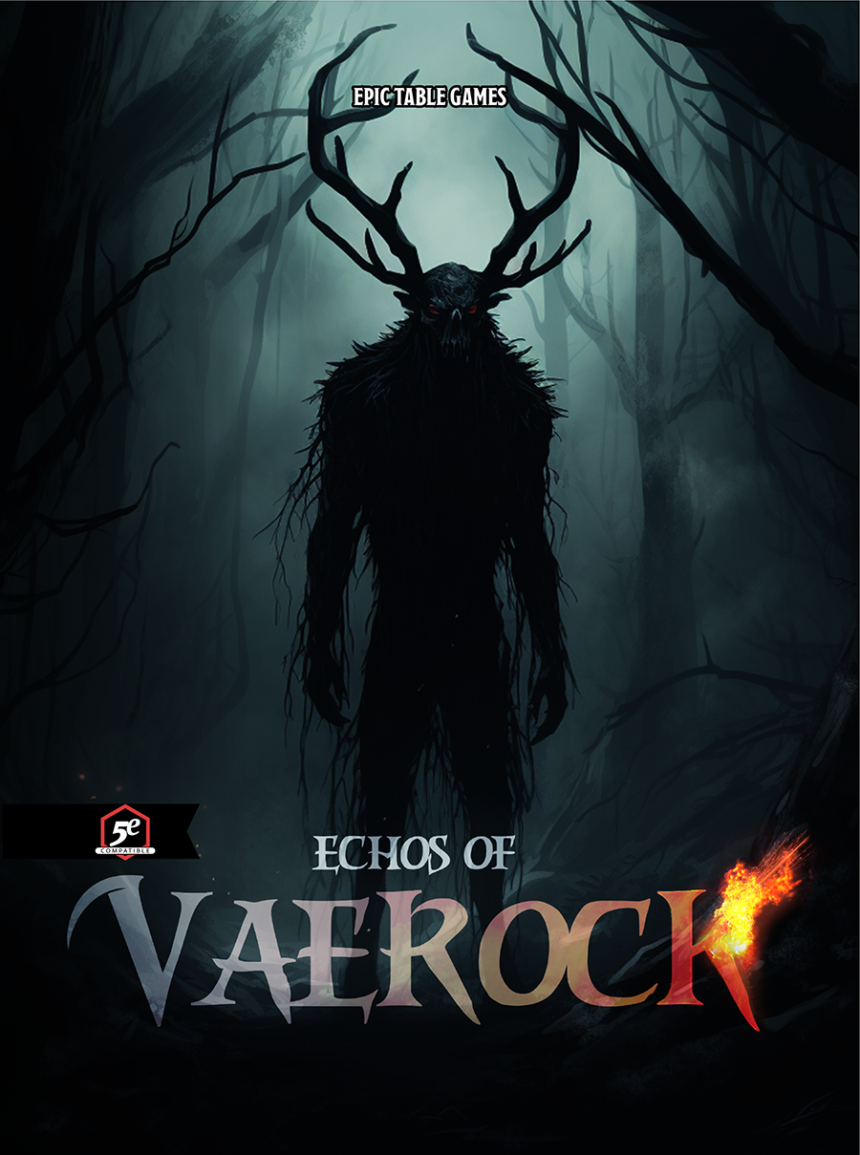Hey there, everyone, and welcome back to your seat at the Epic Table! I’ve been looking forward to writing this one for a long while, because it’s a review of a book I’ve been hotly anticipating. That book is So You Want To Be A Game Master, by Justin Alexander. Well, it’s here and I’ve read it.
What’s it like? Exactly what I should have expected.
Who Is Justin Alexander?
Okay, if you’ve never heard of Justin Alexander and you’re the majority of RPG gamers, head over to thealexandrian.net and click around for a little while.
To be clear: yes, I am telling you to leave this RPG blog and go read someone else’s RPG blog. That’s how influential he is.
Justin Alexander has been blogging about RPGs for longer than some people reading this have been alive. (As far as I can tell, the first RPG post on The Alexandrian turned 18 this very month.) The Alexandrian invented terms like “jacquaying,” later renamed to “xandering” at the request of the original namesake, and the three-clue rule for mysteries. He’s also got a hell of a resume as an RPG writer and producer on his own merits. And he’s also just been playing and GMing games for basically ever.
All of this is to say that when Justin Alexander announces that he’s coming out with a comprehensive guide to GMing, I sit the hell up and take notice. I’ve been reading his blogs for a really long time, and I’ve definitely felt the impact of the techniques he’s recommended at my own gaming table.
And given that, after having read it, you’d think I’d be more enthusiastic in my recommendations. I want to be clear: this is, in many ways, a hell of a book.
It’s just that I couldn’t help but notice its shortcomings as I read it.
What So You Want To Be A Game Master Is
I actually don’t think that I was clear enough in that last bit, so let me go ahead and try again:
This is absolutely the best guide to writing adventures that exists for a number of different systems, and people running those systems will profit immensely from using this guide.
SYWTBAGM is a book about how to run dungeons, mysteries, heists, urban adventures, and wilderness adventures, while also including some miscellaneous advice on various other topics. I got the eBook, so I can’t really describe the layout and such as I normally do, so I’m going to focus on that content. In order to do that I want to quickly define two terms: “strategic” and “tactical.” (I promise this will make sense in a minute.)
It’s easier to define these terms by tackling tactical first. Tactical games are focused on what we as RPG gamers would generally define as an encounter: a single fight that occurs in a set circumstance, usually a single location. Strategic games are the opposite of that: games that focus on the interaction of various groups across an entire map, area, or even world. A tactical game, therefore, focuses on each encounter as a discrete unit (and usually allows you to top off resources between them); a strategic game is going to involve tracking resources and effects across multiple encounters, combining encounters, and even playing encounters against each other.
The simple fact is this: based on this book, Justin Alexander clearly believes that strategic-focused D&D campaigns are the best and most fun RPG campaigns. The further you get away from “strategic” or “D&D,” the less useful SYWTBAGM is.
Something like one-third of the book is exclusively about how to write and run prepared dungeons. Heists, for example, are given something like 25% of that pagecount. A sidebar about the derogatorily-named “precious encounters” flat-out says that much of the advice herein isn’t applicable to tactical RPGs, and to refer to their rulebooks for help with running them. Anyone playing 13th Age, for example, is going to get a lot less out of this than a D&D 5th Edition player. Shadowrun? Less than that.
To an Apocalypse World or Monsterhearts GM? There’s maybe a few dozen pages of the 500 or so that are going to be useful at all.
Now, let me say it again: if you are running a strategic-focused D&D game, buy this book immediately. For what you’re doing, it’s the definitive work. I’d also recommend that anyone running a prepared mystery adventure pick it up; huge amounts of material won’t be useful to you, but the tips on node-based mystery structure are just that good.
With that said, I have two very large objections to this book. The first is that quite a bit of it is actually just D&D houserules that Alexander presents as mechanical fact. (Hidden traps should only trigger on a roll of 1 on a d4! Why a d4? Because he says so!) There’s a sham attempt at saying that they can be easily adapted to other systems, but they’re clearly for D&D. In fact, some of them are D&D; his reaction tables are straight out of older editions.
But that’s not my biggest objection by far.
What So You Want To Be A Game Master Isn’t
In short: this title claims this book is something it’s not, and I’m mad about it.
This book is, once again, an extremely good guide to writing, preparing, and even at some points running certain kinds of adventures. It’s a consolidation of all of The Alexandrian’s extremely good advice in that regard. (And for those wondering: if you’ve read the website, it’s still worth getting because the material is far better organized.)
There’s just way more to GMing than that.
Running NPCs is an “extra credit” section tacked on at the end of the book. So is recruiting for a campaign. Dealing with problem players is never addressed. Neither are rules disagreements. Nor safety tools. Nor finding a system that works for you. Nor improving your self-confidence when speaking to the group. Nor dozens of other topics that I’d consider vital to explain to any new GM in a work that claimed to be a comprehensive guide on the subject. GMing is an incredibly broad umbrella that covers a ton of different skills, disciplines, and activities, and very few of them are even mentioned in this book.
Probably the best way to articulate it is this: if I handed this book to someone who had never played an RPG before—or even someone who’d played a few sessions but never GMed—I would not expect them to have all the skills necessary to GM a session after reading it. Not even close.
That, in my mind, is where the book fails. It’s an incredibly powerful adventure design tool for a number of the most popular games out there. It is not a comprehensive guide to GMing.
Should I Get This Book?
I’ve sat with this question for a while now, because I just wasn’t sure. Here’s my answer.
If you’re running a game where the GM is expected to prepare adventures ahead of time, absolutely buy this book. The quality of your adventures will wildly improve. Just don’t feel obligated to use all the houserules it introduces, and don’t think it’s the be-all, end-all of GMing advice.
If you’re running a game where you’re primarily playing to find out? Don’t bother.
The contents of this post are © 2024 H. Tucker Cobey. All rights reserved.







